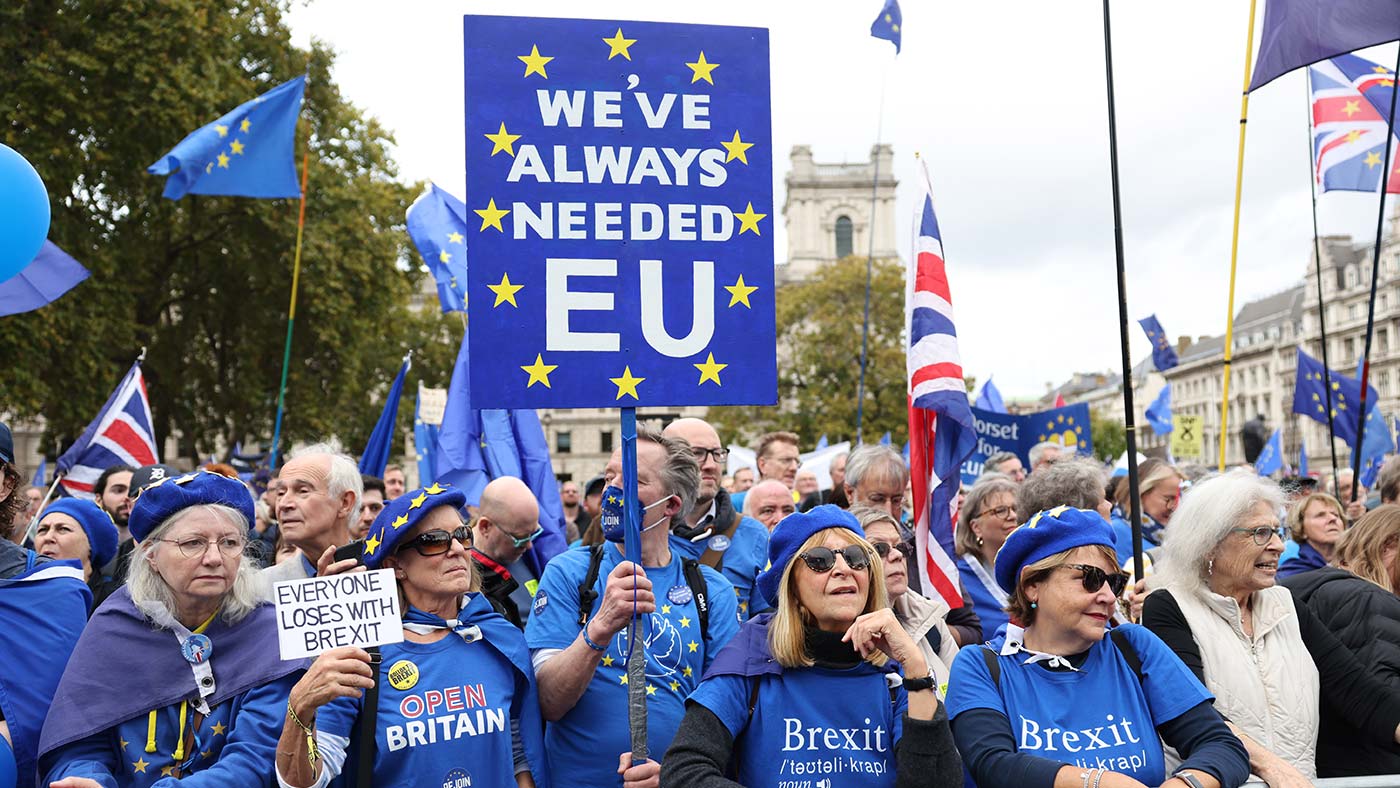Brexit: a divisive anniversary
Three years on from Brexit, its impact on the British economy remains highly debated

A free daily email with the biggest news stories of the day – and the best features from TheWeek.com
You are now subscribed
Your newsletter sign-up was successful
If anyone was celebrating Brexit’s third anniversary last month, they were doing it jolly quietly, said Brian Reade in the Daily Mirror. “Where was the bonging of Big Ben and pealing of church bells”, to mark “our glorious escape from those evil EU slavemasters”? Perhaps the “stony silence” from the Brexiters was unsurprising, given that the IMF thinks the UK will perform worse than any other big economy this year.
Since “freedom day”, trade with the EU has slumped by around 20%. Bloomberg Economics recently estimated that withdrawal from the EU has reduced the size of the UK economy by 4%, costing us £100bn a year. “As for taking back control of our borders, how’s that going? Asking for a friend in Dover.”
Brexit is destined to join Suez and the Iraq War in the “great pantheon” of self-inflicted national catastrophes, said Ian Dunt in The i newspaper. Those who inflicted it on us “should hang their heads in shame”.
The Week
Escape your echo chamber. Get the facts behind the news, plus analysis from multiple perspectives.

Sign up for The Week's Free Newsletters
From our morning news briefing to a weekly Good News Newsletter, get the best of The Week delivered directly to your inbox.
From our morning news briefing to a weekly Good News Newsletter, get the best of The Week delivered directly to your inbox.
‘Misled by lying charlatans’
It’s hard to admit being wrong, said William Keegan in The Observer. But Brexit voters are now doing so in droves; at least they have the excuse that they were “misled by a gang of lying charlatans”. Today, a “tidy majority would like to rejoin” the EU.
But that won’t be happening any time soon, said Allister Heath in The Daily Telegraph. And nor should it. The counter-factual studies showing what Britain has lost due to Brexit are not to be trusted. UK growth since 2016 has been about the same as Germany’s (5.7%); last year, our GDP grew faster than that of France, Italy and Germany.
If the EU is the answer, why are its members’ economies growing no faster than the UK’s? It’s true that our “second-rate” leaders have failed to capitalise on Brexit, but it has only just begun. “Non, je ne bregrette rien, and neither should you.”
‘Destined to leave’
The UK’s departure was shambolic, and the impact on trade has clearly been damaging, said Iain Martin in The Times. But the deep gloom over Brexit has become “so comical in its intensity” – and the tendency to blame Brexit for all Britain’s woes so pervasive – that we’ve forgotten why we left: to gain “greater autonomy” over national affairs.
A free daily email with the biggest news stories of the day – and the best features from TheWeek.com
The UK was always “destined to leave” the EU, because it was never committed to “the relentless logic of closer union”. Now that we can no longer blame problems on the “bogeyman” in Brussels, Britain’s many challenges – on productivity, innovation, investment, improving financial markets, migration and public services – are “our own to fix, or not”. We can either “weep and wail”, or we can get on with it.